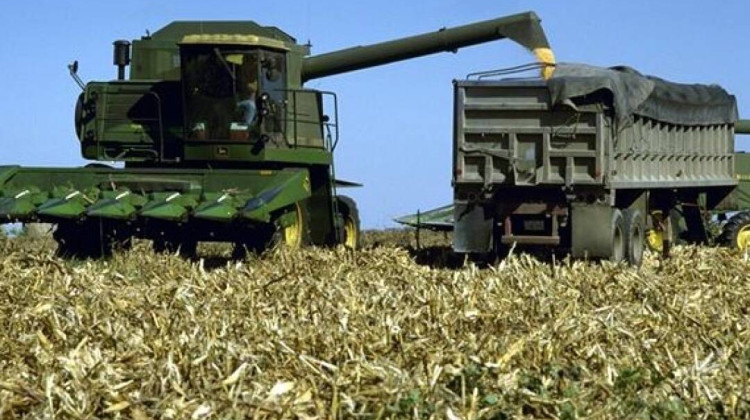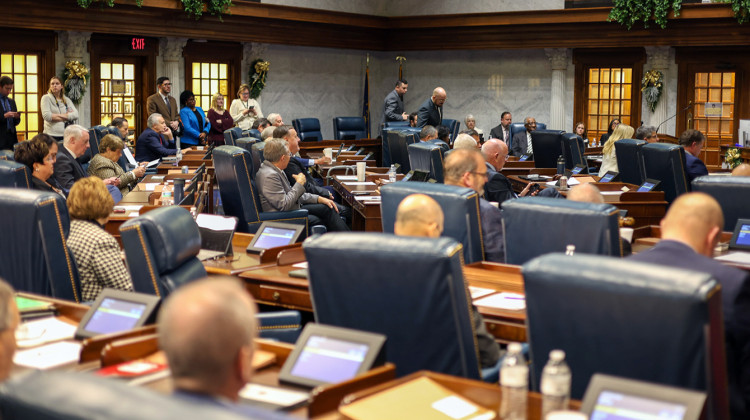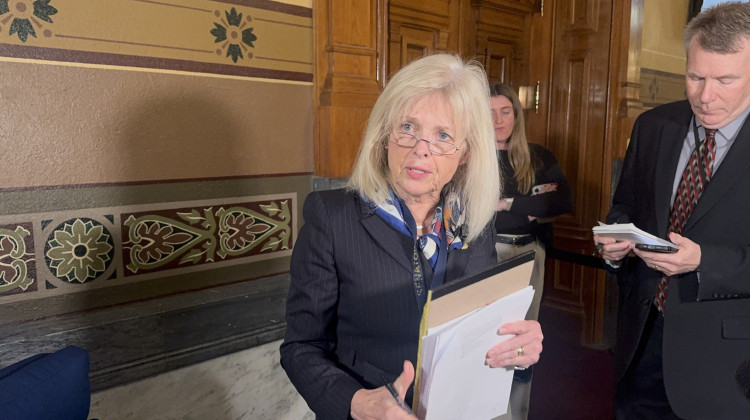
Monsanto CTO Robb Fraley talks about the future of agriculture at Purdue University's Dawn or Doom conference.
Annie Ropeik/IPB NewsThe herbicide dicamba has damaged large swaths of Midwest crops in the past year. But Monsanto, one maker of the weed-killer, says it’s a small-scale problem for a powerful tool.
The agritech giant’s CTO Robb Fraley addressed the issue during a recent talk at Purdue University’s Dawn or Doom tech conference.
Fraley basically invented genetically modified crops – mainly, ones that kill pests or tolerate certain chemicals.
He says dicamba is important because it can attack weeds that have evolved to resist other herbicides, without hurting cotton and soybeans newly designed to withstand dicamba.
But dicamba, marketed in different forms by several companies, is complex to use and prone to drifting onto crops that aren’t made to tolerate it.
Research says it’s damaged several million acres of soybeans and specialty crops in the Midwest since it came into use last year. Indiana alone had 128 complaints of dicamba drift for 2017 as of this week.
Still, Fraley insists far more farmers have benefited from dicamba than have struggled with it.
“They clearly want and need this technology, and really the small percentage of issues we’ve seen are easily fixable,” he says. “And that’s where we’ll be putting our grower education and communication efforts into.”
With record soybean harvests already underway in several states, including Indiana and Illinois, Fraley says he expects farmers’ use of dicamba to double next year.
So far, only Arkansas – which, along with Missouri, has struggled the most with dicamba – has moved toward banning dicamba use. That ban would take effect next summer.
 DONATE
DONATE







 Support WFYI. We can't do it without you.
Support WFYI. We can't do it without you.